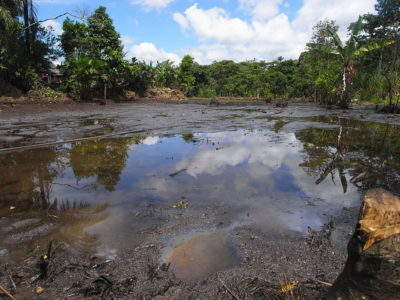An international tribunal has given a favorable decision for Chevron against the Ecuadorian government pertaining to an oil pollution dispute, ruling that a $9.5bn judgment given in Ecuador against the US energy company in 2011 was incorrectly given.

Image: International tribunal gives favorable ruling for Chevron in Ecuador oil pollution case. Photo: courtesy of Julien Gomba/Wikipedia.org.
The tribunal administered by the Permanent Court of Arbitration in The Hague found that Ecuador breached its obligations under international treaties, investment agreements and international law.
The tribunal unanimously came to a conclusion that the Ecuadorian judgment against Chevron was brought through fraud, bribery and corruption. It also held that the judgment against the US firm was based on claims that were settled before and released by Ecuador years earlier.
The tribunal ruled that the Ecuadorian judgment violated international public policy and thereby should not be recognized or enforced by courts in other countries.
The Ecuadorian oil pollution case, which had its roots in the early 90s, centers around Texaco Petroleum (TexPet), an oil and gas company that was acquired in 2001 by Chevron.
TexPet had partnered state-owned Petroecuador between 1964 and 1992, and was charged of causing environmental pollution because of their Lago Agrio oilfield operations.
Following the favorable ruling from the international tribune, Chevron said that is not obliged to adhere to the Ecuadorian judgment.
According to the tribunal, Ecuador violated its obligations under a 1995 settlement agreement releasing TexPet and its affiliates from public environmental claims. It was on these claims that the $9.5bn Ecuadorian judgment was based on, said Chevron.
The tribunal found that TexPet spent nearly $40m in environmental remediation and community development and Ecuador in 1998 certified the company to have carried out all of its obligations as per the 1995 Settlement Agreement.
Chevron vice president and general counsel R. Hewitt Pate said: “The tribunal found extensive evidence of fraud and corruption by members of the Ecuadorian judiciary acting in collusion with American and Ecuadorian lawyers.
“This award is consistent with rulings by courts in the United States, Argentina, Brazil, Canada and Gibraltar confirming that the Ecuadorian judgment is unenforceable in any country that respects the rule of law.”
